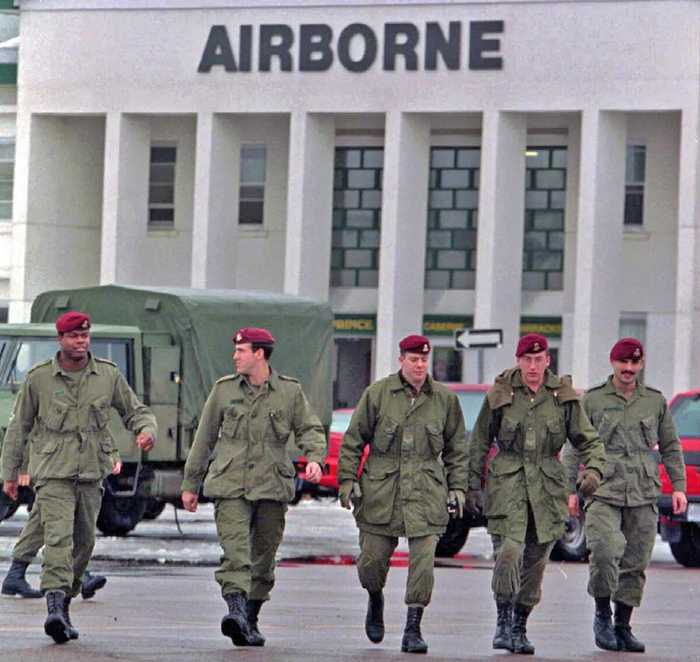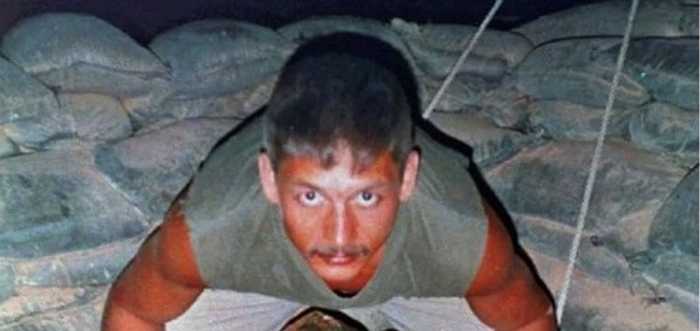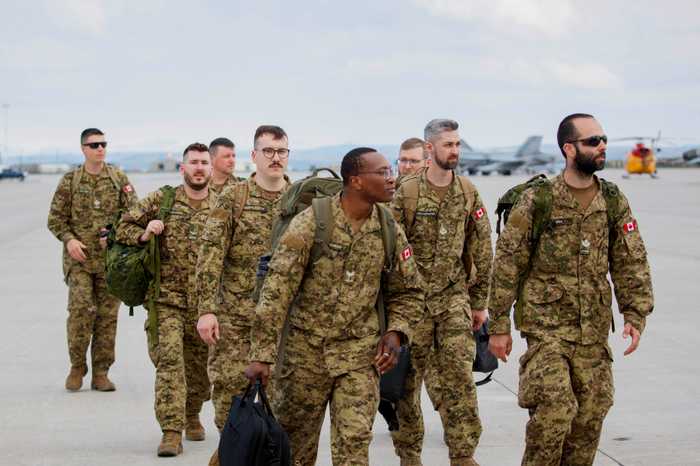Published 10:26 IST, May 27th 2024
How Canada’s ‘Operation Restore Hope’ Led to Drug-Induced Warcrimes in Somalia
Nicknamed "Psycho Tuesdays," the drug caused hallucinations, paranoia, and violent tendencies.
- Defence
- 5 min read
Somalia: In the early 1990s, Canada participated in Operation Restore Hope, an international mission led by the United States and later taken over by the United Nations. The operation aimed to stabilize Somalia, which was ravaged by civil war and famine. Canada deployed its elite Airborne Regiment to assist in this humanitarian effort. However, what was intended to be a noble mission took a dark turn when Canadian soldiers were prescribed the anti-malaria drug mefloquine. The drug's severe side effects led to a series of tragic events, culminating in war crimes that tarnished Canada's military reputation.
Operation Restore Hope was initiated to provide humanitarian aid to the Somali people, who were suffering from the devastating effects of civil war and famine. The mission, protected under the United Nations and led by the United States, aimed to create a secure environment for aid distribution. Canadian soldiers, part of the Airborne Regiment, were among the international forces deployed to Somalia.
Upon arrival, Canadian soldiers were administered mefloquine, an anti-malaria drug known for its weekly dosage regimen. This medication, intended to protect troops from malaria, soon became infamous among the soldiers who dubbed their dosing day "Psycho Tuesdays." The drug's severe side effects included hallucinations, dangerous thoughts, and night terrors. Despite the adverse reactions, refusal to take the medication was met with threats of court-martial.
The Mefloquine Controversy
Mefloquine, while effective in preventing malaria, has been associated with severe neuropsychiatric side effects. Soldiers reported experiencing vivid hallucinations, paranoia, and violent tendencies. The drug's impact was so profound that it earned the nickname "Psycho Tuesdays" due to the timing of its administration and the predictable onset of side effects.

The administration of mefloquine to Canadian troops in Somalia without proper warnings about its potential side effects set the stage for tragedy. Soldiers were forced to continue taking the drug under threat of disciplinary action, despite the growing reports of severe psychological disturbances.
The Somalia Affair: A Scandal Unfolds
The most tragic and notorious incident linked to mefloquine's side effects occurred when Canadian soldiers discovered 16-year-old Shidane Arone hiding in a portable toilet near their base. Mistaking him for a thief, they brought him to a munitions bunker where he was brutally beaten to death. This incident, known as the Somalia Affair, shocked the world and led to Canada's withdrawal from Somalia. The ensuing trial saw several soldiers charged, though the main perpetrator's suicide attempt rendered him unfit to stand trial.

The Somalia Affair was a 1993 Canadian military scandal prompted by the beating to death of Shidane Arone, a Somali teenager, at the hands of two Canadian peacekeepers participating in humanitarian efforts in Somalia. The act was documented by photos, revealing the brutality and leading to allegations of a cover-up when altered documents were sent to a CBC reporter. This scandal marked a dark era in Canadian military history, severely damaging its international reputation.
In response to public outcry, a government inquiry was launched, though it was cut short, further fueling public backlash. The Somalia Inquiry highlighted systemic issues within the Canadian Forces, ultimately leading to the disbandment of the Canadian Airborne Regiment. This period saw a significant reduction in military spending, with immediate cuts of nearly 25%.
The inquiry revealed a culture of indiscipline and a lack of proper oversight within the Airborne Regiment. It also exposed how the effects of mefloquine were downplayed or ignored by military leadership, contributing to the soldiers' erratic and violent behaviour. The Canadian Airborne Regiment was ordered to be disbanded by the Minister of National Defence after the Somalia Affair on September 1, 1995.
Lawsuits and Ongoing Suffering
Years after the Somalia mission, eight former Canadian soldiers filed lawsuits against the government, claiming they were poisoned by mefloquine during missions in Somalia, Rwanda, and Afghanistan. Each veteran sought over $10 million in damages, citing long-term side effects such as psychosis, rage, paranoia, insomnia, and tinnitus. Lawyer Paul Miller, representing the veterans, argued that his clients were forced to take the drug without being informed of its severe side effects and were threatened with court-martial if they refused.

One of the plaintiffs, former captain Brad Elms, died by suicide in 2014, a tragedy attributed to the neurological and psychiatric effects of mefloquine. His widow continues to seek justice on behalf of his estate. Another veteran, retired Sgt. Richard Schumann recounted horrifying experiences of vivid dreams and suicidal tendencies, which nearly cost him his life. Schumann, now part of the mass tort action, described how mefloquine had destroyed his life, leaving him with seizures, tingling limbs, and night terrors.
The Canadian government and military have faced severe criticism for their handling of the mefloquine issue. Critics argue that the potential side effects were known but not adequately communicated to the soldiers, leading to unnecessary suffering and tragedy. The mefloquine-induced war crimes in Somalia underscore the need for comprehensive oversight and transparency in military medical practices.
Updated 10:26 IST, May 27th 2024
